National+Academy+of+Engineering
-
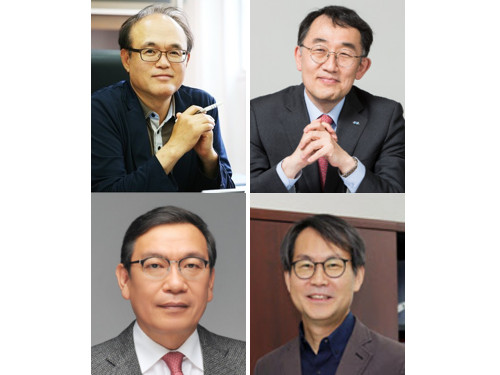 Seven Faculty Members Elected to Join the National Academy of Engineering of Korea
< Clockwise from top left: Professor Doo-Hwan Bae, Professor Seung Seob Lee, Professor Kyung Cheol Choi, Professor JaeYong Choung >
Seven KAIST faculty members have been elected as National Academy of Engineering of Korea (NAEK) members and associate members. NAEK, the most prestigious engineering society in Korea, elects new members with a minimum of 15 years of experience in engineering in academia and business every year.
In 2022, 24 members were newly elected from academia, including four KAIST faculty members: Professor Doo-Hwan Bae from the SW Education Center, KAIST Provost and Executive Vice President Seung Seob Lee, Professor JaeYong Choung from the School of Business and Technology Management, and Professor Kyung Cheol Choi of the School of Electrical Engineering. In the business sector, 21 members were elected as members in business, including Vice Chairman Jong-hee Han of Samsung Electronics, CEO Hyeon-Mo Ku of KT, President Sang-Ryul Lee of the Korea Aerospace Research Institute, President Kyo Won Jin of SK Hynix, CEO Eunkang Song of Capstone Partners, and Executive Vice President Se-hoon Kim of Hyundai Motor Company.
Among the newly elected 40 associate members from academia, three KAIST professors were listed: Professor Sukyoung Ryu from the School of Computing, Professor Joongmyeon Bae from the Department of Mechanical Engineering, and Professor EunAe Cho from the Department of Materials Science and Engineering. Another 44 members were elected as associate members in business, including Vice Chairman Hag-Dong Kim of POSCO, President Seong-Hyeon Cho of Mando Corp, President Siyoung Choi of Samsung Electronics, President Joo Sun Choi of Samsung Display, and Chairman Byung-Gyu Chang of Krafton.
NAEK evaluates candidates not only on their academic achievements, but on various other criteria including technological achievements, patents, the nurturing of talents, and contributions to the advancements of the industry. Candidates are then elected through written ballots by the members of NAEK. There are now 294 members and 360 associate members of NAEK.
2022.01.14 View 7137
Seven Faculty Members Elected to Join the National Academy of Engineering of Korea
< Clockwise from top left: Professor Doo-Hwan Bae, Professor Seung Seob Lee, Professor Kyung Cheol Choi, Professor JaeYong Choung >
Seven KAIST faculty members have been elected as National Academy of Engineering of Korea (NAEK) members and associate members. NAEK, the most prestigious engineering society in Korea, elects new members with a minimum of 15 years of experience in engineering in academia and business every year.
In 2022, 24 members were newly elected from academia, including four KAIST faculty members: Professor Doo-Hwan Bae from the SW Education Center, KAIST Provost and Executive Vice President Seung Seob Lee, Professor JaeYong Choung from the School of Business and Technology Management, and Professor Kyung Cheol Choi of the School of Electrical Engineering. In the business sector, 21 members were elected as members in business, including Vice Chairman Jong-hee Han of Samsung Electronics, CEO Hyeon-Mo Ku of KT, President Sang-Ryul Lee of the Korea Aerospace Research Institute, President Kyo Won Jin of SK Hynix, CEO Eunkang Song of Capstone Partners, and Executive Vice President Se-hoon Kim of Hyundai Motor Company.
Among the newly elected 40 associate members from academia, three KAIST professors were listed: Professor Sukyoung Ryu from the School of Computing, Professor Joongmyeon Bae from the Department of Mechanical Engineering, and Professor EunAe Cho from the Department of Materials Science and Engineering. Another 44 members were elected as associate members in business, including Vice Chairman Hag-Dong Kim of POSCO, President Seong-Hyeon Cho of Mando Corp, President Siyoung Choi of Samsung Electronics, President Joo Sun Choi of Samsung Display, and Chairman Byung-Gyu Chang of Krafton.
NAEK evaluates candidates not only on their academic achievements, but on various other criteria including technological achievements, patents, the nurturing of talents, and contributions to the advancements of the industry. Candidates are then elected through written ballots by the members of NAEK. There are now 294 members and 360 associate members of NAEK.
2022.01.14 View 7137 -
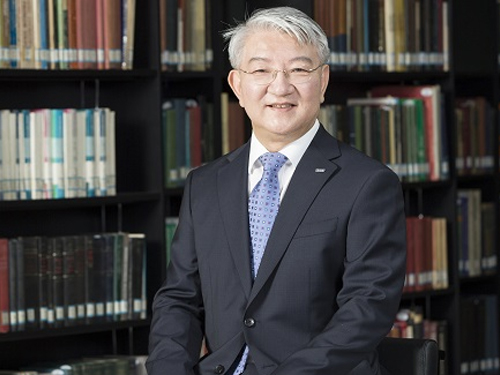 VP Sang Yup Lee Honored with the Pony Chung Innovation Award
Vice President for Research Sang Yup Lee became the recipient of the Innovation Award by the Pony Chung Foundation that was established to honor the late Se-yung Chung, the former chairman of Hyundai Development Company. He will receive 200 million KRW in prize money. Chairman Chung developed Korea’s first domestically manufactured automobile, ‘Pony,’ in the mid-1970s that became the cornerstone of Korea’s auto industry today.
Distinguished Professor Lee, from the Department of Chemical and Biomolecular Engineering, is a pioneering scholar in the field of systems metabolic engineering who developed various micro-organisms for producing a wide range of fuels, chemicals, materials, and natural compounds.
He recently was elected as a foreign member of the Royal Society in the UK and is the first Korean ever elected into the National Academy of Inventors (NAI) in the US as well as one of 13 scholars elected as an International Member of both the National Academy of Sciences (NAS) and the National Academy of Engineering (NAE) in the US.
2021.07.13 View 11848
VP Sang Yup Lee Honored with the Pony Chung Innovation Award
Vice President for Research Sang Yup Lee became the recipient of the Innovation Award by the Pony Chung Foundation that was established to honor the late Se-yung Chung, the former chairman of Hyundai Development Company. He will receive 200 million KRW in prize money. Chairman Chung developed Korea’s first domestically manufactured automobile, ‘Pony,’ in the mid-1970s that became the cornerstone of Korea’s auto industry today.
Distinguished Professor Lee, from the Department of Chemical and Biomolecular Engineering, is a pioneering scholar in the field of systems metabolic engineering who developed various micro-organisms for producing a wide range of fuels, chemicals, materials, and natural compounds.
He recently was elected as a foreign member of the Royal Society in the UK and is the first Korean ever elected into the National Academy of Inventors (NAI) in the US as well as one of 13 scholars elected as an International Member of both the National Academy of Sciences (NAS) and the National Academy of Engineering (NAE) in the US.
2021.07.13 View 11848 -
 Prof. Sang Yup Lee Elected as a Foreign Member of the Royal Society
Vice President for Research Distinguished Professor Sang Yup Lee was elected as a foreign member of the Royal Society in the UK. On May 6, the Society announced the list of distinguished new 52 fellows and 10 foreign members who achieved exceptional contributions to science. Professor Lee and Professor V. Narry Kim from Seoul National University are the first foreign members ever elected from Korea.
The Royal Society, established in 1660, is one of the most prestigious national science academies and a fellowship of 1,600 of the world’s most eminent scientists. From Newton to Darwin, Einstein, Hawking, and beyond, pioneers and paragons in their fields are elected by their peers. To date, there are 280 Nobel prize winners among the fellows.
Distinguished Professor Lee from the Department of Chemical and Biomolecular Engineering at KAIST is one of the Highly Cited Researchers (HCRs) who pioneered systems metabolic engineering and developed various micro-organisms for producing a wide range of fuels, chemicals, materials, and natural compounds.
His seminal scholarship and research career have already been recognized worldwide. He is the first Korean ever elected into the National Academy of Inventors (NAI) in the US and one of 13 scholars elected as an International Member of both the National Academy of Sciences (NAS) and the National Academy of Engineering (NAE) in the US. With this fellowship, he added one more accolade of being the first non-US and British Commonwealth scientist elected into the three most prestigious science academies: the NAS, the NAE, and the Royal Society.
2021.05.07 View 12915
Prof. Sang Yup Lee Elected as a Foreign Member of the Royal Society
Vice President for Research Distinguished Professor Sang Yup Lee was elected as a foreign member of the Royal Society in the UK. On May 6, the Society announced the list of distinguished new 52 fellows and 10 foreign members who achieved exceptional contributions to science. Professor Lee and Professor V. Narry Kim from Seoul National University are the first foreign members ever elected from Korea.
The Royal Society, established in 1660, is one of the most prestigious national science academies and a fellowship of 1,600 of the world’s most eminent scientists. From Newton to Darwin, Einstein, Hawking, and beyond, pioneers and paragons in their fields are elected by their peers. To date, there are 280 Nobel prize winners among the fellows.
Distinguished Professor Lee from the Department of Chemical and Biomolecular Engineering at KAIST is one of the Highly Cited Researchers (HCRs) who pioneered systems metabolic engineering and developed various micro-organisms for producing a wide range of fuels, chemicals, materials, and natural compounds.
His seminal scholarship and research career have already been recognized worldwide. He is the first Korean ever elected into the National Academy of Inventors (NAI) in the US and one of 13 scholars elected as an International Member of both the National Academy of Sciences (NAS) and the National Academy of Engineering (NAE) in the US. With this fellowship, he added one more accolade of being the first non-US and British Commonwealth scientist elected into the three most prestigious science academies: the NAS, the NAE, and the Royal Society.
2021.05.07 View 12915 -
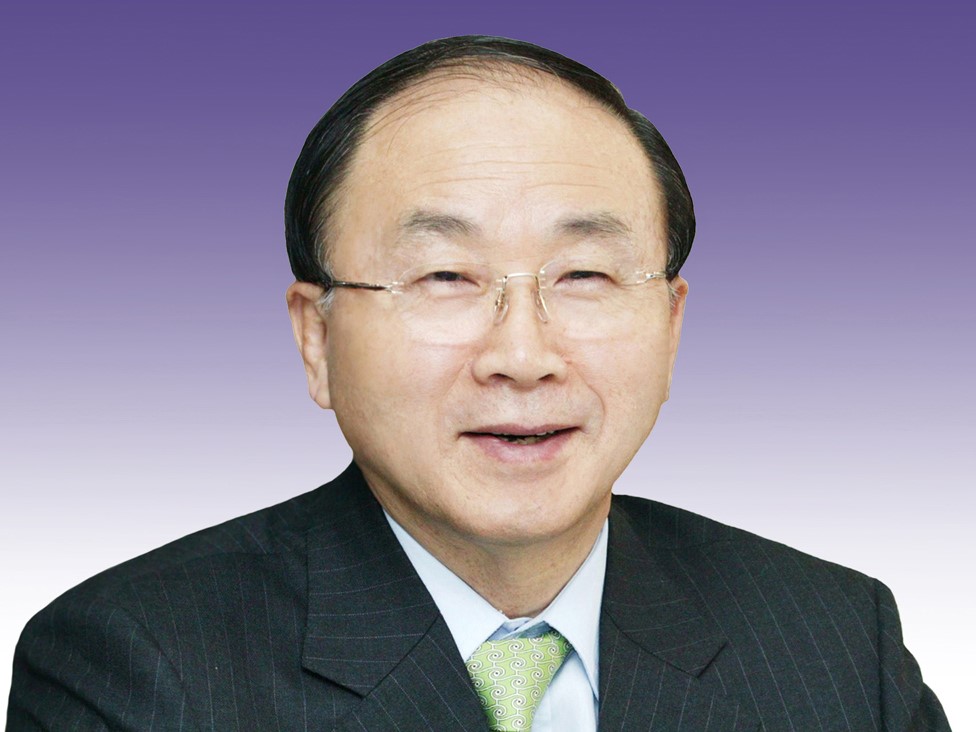 Former Minister of Science and Technology Woo Sik Kim Elected as New Chairman of Board of Trustees
Dr. Woo Sik Kim, former Minister of Science and Technology and Deputy Prime Minister, was elected as the new chairman of the KAIST Board of Trustees on March 26. Dr. Kim will succeed Chairman Jang-Mu Lee, whose three-year term expired last month.
Dr. Kim is a chemical engineering professor who spent most of his academic career at Yonsei University from 1968. In 2000, he held the office of president of Yonsei University for four years before moving to the Presidential Office of President Roh Moo-Hyun as his chief of staff in 2004. After serving in the Blue House for two years, he served as the Minister of Science and Technology from 2006 to 2008.
An emeritus fellow of the National Academy of Engineering of Korea (NAEK), Chairman Kim also taught at KAIST as an invited distinguished professor from 2008 to 2010. He is currently the chairman of the Creativity Engineering Institute (CEI).
(END)
2020.04.06 View 14384
Former Minister of Science and Technology Woo Sik Kim Elected as New Chairman of Board of Trustees
Dr. Woo Sik Kim, former Minister of Science and Technology and Deputy Prime Minister, was elected as the new chairman of the KAIST Board of Trustees on March 26. Dr. Kim will succeed Chairman Jang-Mu Lee, whose three-year term expired last month.
Dr. Kim is a chemical engineering professor who spent most of his academic career at Yonsei University from 1968. In 2000, he held the office of president of Yonsei University for four years before moving to the Presidential Office of President Roh Moo-Hyun as his chief of staff in 2004. After serving in the Blue House for two years, he served as the Minister of Science and Technology from 2006 to 2008.
An emeritus fellow of the National Academy of Engineering of Korea (NAEK), Chairman Kim also taught at KAIST as an invited distinguished professor from 2008 to 2010. He is currently the chairman of the Creativity Engineering Institute (CEI).
(END)
2020.04.06 View 14384 -
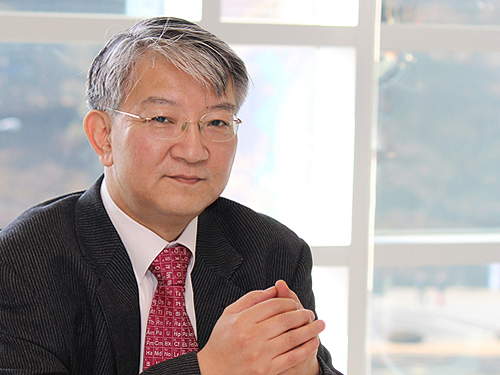 Distinguished Professor Sang Yup Lee Honored with the 23rd NAEK Award
(Distinguished Professor Sang Yup Lee from the Department of Chemical and Biomolecular Engineering)
Distinguished Professor Sang Yup Lee from the Department of Chemical and Biomolecular Engineering was honored to be the laureate of the 23rd NAEK Award.
The NAEK (National Academy of Engineering of Korea) Award was instituted in 1997 to honor and recognize engineers who have made significant contributions to the development of the engineering and technology field at universities, industries, and institutions. Every year, it is conferred to only one person who has achieved original and world-leading research that has led to national development.
Distinguished Professor Lee is a pioneering scholar of the field of systems metabolic engineering and he was recognized for his significant achievements in the biochemical industry by developing novel microbial bioprocesses. In particular, he is globally renowned for biological plastic synthesis, making or decomposing polymers with microorganisms instead of using fossil resources.
He has produced numerous high-quality research breakthroughs in metabolic and systems engineering. In 2016, he produced an easily degradable plastic with Escherichia coli (E. coli). In 2018, he successfully produced aromatic polyesters, the main material for PET (poly ethylene terephthalate) from E. coli strains. He also identified microorganism structures for PET degradation and improved its degradability with a novel variant.
His research was ranked number one in the research and development division of Top Ten Science and Technology News 2018 announced by Korean Federation of Science & Technology Societies. He is one of highly cited researchers (HCR) ranked in the top 1% by citations for their field by the Clarivate Analytics.
2019.03.21 View 9819
Distinguished Professor Sang Yup Lee Honored with the 23rd NAEK Award
(Distinguished Professor Sang Yup Lee from the Department of Chemical and Biomolecular Engineering)
Distinguished Professor Sang Yup Lee from the Department of Chemical and Biomolecular Engineering was honored to be the laureate of the 23rd NAEK Award.
The NAEK (National Academy of Engineering of Korea) Award was instituted in 1997 to honor and recognize engineers who have made significant contributions to the development of the engineering and technology field at universities, industries, and institutions. Every year, it is conferred to only one person who has achieved original and world-leading research that has led to national development.
Distinguished Professor Lee is a pioneering scholar of the field of systems metabolic engineering and he was recognized for his significant achievements in the biochemical industry by developing novel microbial bioprocesses. In particular, he is globally renowned for biological plastic synthesis, making or decomposing polymers with microorganisms instead of using fossil resources.
He has produced numerous high-quality research breakthroughs in metabolic and systems engineering. In 2016, he produced an easily degradable plastic with Escherichia coli (E. coli). In 2018, he successfully produced aromatic polyesters, the main material for PET (poly ethylene terephthalate) from E. coli strains. He also identified microorganism structures for PET degradation and improved its degradability with a novel variant.
His research was ranked number one in the research and development division of Top Ten Science and Technology News 2018 announced by Korean Federation of Science & Technology Societies. He is one of highly cited researchers (HCR) ranked in the top 1% by citations for their field by the Clarivate Analytics.
2019.03.21 View 9819 -
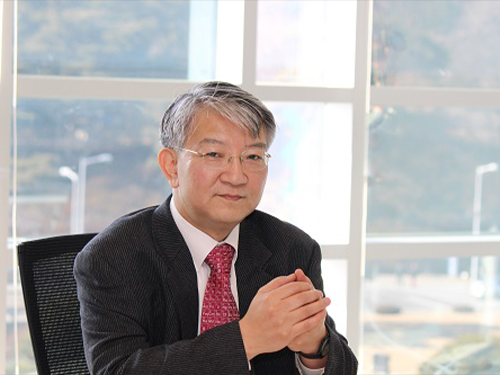 Distinguished Professor Lee Elected to the NAS
Distinguished Professor Sang Yup Lee of the Department of Chemical and Biomolecular Engineering was elected as a foreign associate to the US National Academy of Sciences (NAS) on May 2. The National Academy of Sciences elected 84 new members and 21 foreign associates in recognition of their distinguished and continuing achievements in their original research. Election to the Academy is widely regarded as one of the highest honors that a scientist can receive.
Professor Lee was also elected in 2010 as a member of the US National Academy of Engineering (NAE) for his leadership in microbial biotechnology and metabolic engineering, including the development of fermentation processes for biodegradable polymers and organic acids. Until 2016, there are only 12 people worldwide who are foreign associates of both NAS and NAE.
He is the first Korean elected to both prestigious academies, the NAS and the NAE in the US. Professor Lee is currently the dean of KAIST Institutes, the world leading institute for multi-and interdisciplinary research. He is also serving as co-chair of the Global Council on Biotechnology and member of the Global Future Council on the Fourth Industrial Revolution, the World Economic Forum.
2017.05.16 View 11286
Distinguished Professor Lee Elected to the NAS
Distinguished Professor Sang Yup Lee of the Department of Chemical and Biomolecular Engineering was elected as a foreign associate to the US National Academy of Sciences (NAS) on May 2. The National Academy of Sciences elected 84 new members and 21 foreign associates in recognition of their distinguished and continuing achievements in their original research. Election to the Academy is widely regarded as one of the highest honors that a scientist can receive.
Professor Lee was also elected in 2010 as a member of the US National Academy of Engineering (NAE) for his leadership in microbial biotechnology and metabolic engineering, including the development of fermentation processes for biodegradable polymers and organic acids. Until 2016, there are only 12 people worldwide who are foreign associates of both NAS and NAE.
He is the first Korean elected to both prestigious academies, the NAS and the NAE in the US. Professor Lee is currently the dean of KAIST Institutes, the world leading institute for multi-and interdisciplinary research. He is also serving as co-chair of the Global Council on Biotechnology and member of the Global Future Council on the Fourth Industrial Revolution, the World Economic Forum.
2017.05.16 View 11286 -
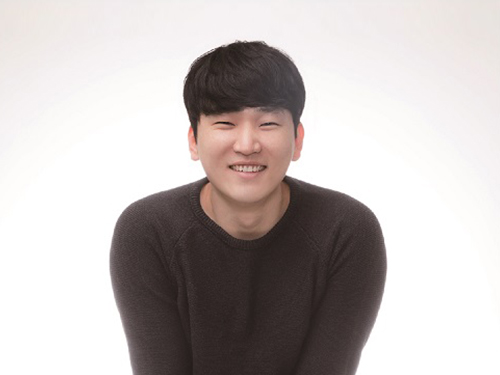 KAIST Ph.D. Candidate Wins the Next Generation of Engineers Award
Joo-Sung Kim, a doctoral student at the EEWS (Environment, Energy, Water and Sustainability) Graduate School won the inaugural Next Generation of Engineers Award in Leadership on December 14, 2016.
The National Academy of Engineering of Korea hosts this award to support creative and ambitious students who have the potential to become leaders in engineering and who will serve as role models for future Korean engineers. Based on the recommendations of university professors in engineering and members of the academy, seven students are selected for the award in the categories of leadership and entrepreneurship.
With his research focus on the development of high-performance, next-generation secondary cells for wearable devices such as smart watches, health bands, and smart eyewear, Joo-Sung created a startup, Lithium-ion Battery Energy Science and Technology (LiBEST), Inc. He plans to base his company at the Office of University and Industry Cooperation, KAIST, where he can receive assistance for launching the mass-production system for his technology.
His adviser, Professor Jang-Wook Choi of the EEWS Graduate School, noted, “Joo-Sung has been a great student who has a strong sense of curiosity and perseverance. The award is the by-product of his hard work.”
“I have always enjoyed my work and study as a researcher, but eventually would like to expand my career into business based on the results of my research. It would be wonderful if I could become a businessman like Elon Musk, Masayoshi Son, or Ma Yun and create a role model for aspiring engineers in Korea by combining science and technology with business demand to create social values that benefit many people,” Joo-Young said.
2016.12.26 View 12135
KAIST Ph.D. Candidate Wins the Next Generation of Engineers Award
Joo-Sung Kim, a doctoral student at the EEWS (Environment, Energy, Water and Sustainability) Graduate School won the inaugural Next Generation of Engineers Award in Leadership on December 14, 2016.
The National Academy of Engineering of Korea hosts this award to support creative and ambitious students who have the potential to become leaders in engineering and who will serve as role models for future Korean engineers. Based on the recommendations of university professors in engineering and members of the academy, seven students are selected for the award in the categories of leadership and entrepreneurship.
With his research focus on the development of high-performance, next-generation secondary cells for wearable devices such as smart watches, health bands, and smart eyewear, Joo-Sung created a startup, Lithium-ion Battery Energy Science and Technology (LiBEST), Inc. He plans to base his company at the Office of University and Industry Cooperation, KAIST, where he can receive assistance for launching the mass-production system for his technology.
His adviser, Professor Jang-Wook Choi of the EEWS Graduate School, noted, “Joo-Sung has been a great student who has a strong sense of curiosity and perseverance. The award is the by-product of his hard work.”
“I have always enjoyed my work and study as a researcher, but eventually would like to expand my career into business based on the results of my research. It would be wonderful if I could become a businessman like Elon Musk, Masayoshi Son, or Ma Yun and create a role model for aspiring engineers in Korea by combining science and technology with business demand to create social values that benefit many people,” Joo-Young said.
2016.12.26 View 12135 -
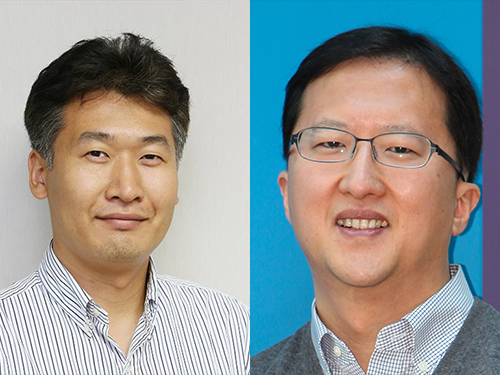 Professors Jeon and Choi Receive the Young Scientist Award
Professors Seokwoo Jeon of the Department of Materials Science and Engineering and Jang Wook Choi of the Graduate School of Energy, Environment, Water and Sustainability (EEWS) at KAIST received the Young Scientist Award.
The award ceremony took place at the Korea Press Center in Seoul. Presented by the Ministry of Science, ICT and Future Planning of Korea and the National Academy of Engineering of Korea, the Young Scientist Award is given to outstanding scientists under the age of 40 who have demonstrated excellence in their research in the field of natural science.
Each year the award is given to three scientists in different areas.
Professor Jeon was recognized for his achievement in creating a new property of materials. He studied synthesis and development of low-dimensional nanomaterials and developed a large area nanostructure.
Professor Choi’s research area was to discover optimal materials for rechargeable batteries. By applying his research, he developed rechargeable batteries with high efficiency, making the wearable system more feasible.
2016.01.11 View 13907
Professors Jeon and Choi Receive the Young Scientist Award
Professors Seokwoo Jeon of the Department of Materials Science and Engineering and Jang Wook Choi of the Graduate School of Energy, Environment, Water and Sustainability (EEWS) at KAIST received the Young Scientist Award.
The award ceremony took place at the Korea Press Center in Seoul. Presented by the Ministry of Science, ICT and Future Planning of Korea and the National Academy of Engineering of Korea, the Young Scientist Award is given to outstanding scientists under the age of 40 who have demonstrated excellence in their research in the field of natural science.
Each year the award is given to three scientists in different areas.
Professor Jeon was recognized for his achievement in creating a new property of materials. He studied synthesis and development of low-dimensional nanomaterials and developed a large area nanostructure.
Professor Choi’s research area was to discover optimal materials for rechargeable batteries. By applying his research, he developed rechargeable batteries with high efficiency, making the wearable system more feasible.
2016.01.11 View 13907